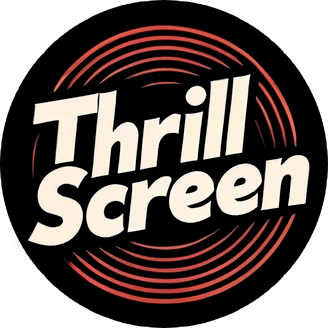The Enduring Legacy of Boris Karloff in Horror Cinema
In the pantheon of horror icons, few have had such a lasting and profound influence as Boris Karloff. His name is synonymous with the genre, evoking the image of the dark, the uncanny, and the terrifying. Karloff’s impact on horror films is a rich vein of discussion, one that stretches back to the early days of cinema and threads through to the present, influencing countless works and creators within the genre.
The Historical Context of Karloff’s Rise
Understanding Boris Karloff’s significance in horror cinema necessitates a journey back to Hollywood’s golden age. It was a time when the industry was in full bloom and the thirst for new and thrilling movie experiences was palpable among audiences worldwide. Karloff, born William Henry Pratt, carved his niche in this blossoming era, catapulting to stardom with his portrayal of Frankenstein’s Monster in the 1931 classic “Frankenstein”. This film, directed by James Whale, exploited the unique capabilities of the film medium to bring a chilling narrative to life, and Karloff’s performance was its dark heart.
The Emergence of a Horror Icon
Karloff’s presence on the silver screen offered something previously unseen: a poignant blend of pathos and menace, helping to establish and define the horror film as a genre. His deft ability to inspire empathy while eliciting fear was what made his version of the monster so compelling and relatable.
The Ripple Effect over Decades
His influence did not wane with the conclusion of any single film. Karloff went on to portray a myriad of roles that cemented his status as a horror legend. From “The Mummy” to “The Old Dark House”, and beyond, each of Karloff’s performances contributed to the evolution of the genre. And as horror evolved, from the chiaroscuro and exaggerated expressions of the 1930s to the more sophisticated tensions of modern horror, the foundation that Karloff had helped lay was unmistakable.
The Characteristics of Karloff’s Impact on Cinematic Horror
Physicality and Presence
Looking deeper into Karloff’s technique reveals the underpinnings of his timeless impact. His towering physique and signature makeup in “Frankenstein” gifted the monster with both an otherworldly and, paradoxically, a deeply human quality. The creature’s lumbering movements accentuated by Karloff’s nuanced gestures conveyed a soul in torment – a feat of physical acting that has become a touchstone for the genre.
Pioneering Makeup and Effects
The partnership with makeup artist Jack Pierce was a crucial component of Karloff’s legacy. As the man behind the monster’s iconic look in “Frankenstein”, Pierce’s meticulous craftsmanship, combined with Karloff’s performance, opened up new horizons in the realm of cinematic makeup and prosthetics – an area that continues to be central to the horror genre.
Psychological Depth
Karloff’s characters often displayed an emotional depth that went beyond the surface terrors. He imbued his monsters and madmen with inner turmoil, creating villains that were as psychologically complex as they were visually frightening. It is this emphasis on inner darkness that has informed the psychological horror subgenre, seen in the multi-layered villains of today’s films.
Connecting the Dots to Modern Horror
No discussion of Karloff’s contributions to the world of cinematic horror is complete without recognizing the bridge his work provided to contemporary filmmaking. Modern horror directors, from Guillermo del Toro to Jordan Peele, owe a debt to the tropes and techniques that Karloff and his contemporaries pioneered. His characters have proven immortal, often reimagined in new forms, yet always retaining the essence that Karloff brought to them. His portrayal of misunderstood or evil characters with a touch of humanity has become an enduring tradition in horror storytelling.
Karloff’s Timeless Presence in Today’s Horror Landscape
In conclusion, Boris Karloff’s impact on horror cinema is both monumental and nuanced. His performances have resonated through decades, setting a benchmark for character portrayal in the genre and demonstrating the power of horror films to explore the depths of the human psyche. Karloff’s legacy is not merely one of fame but one of artistic influence that will continue to shape the face of horror for generations to come. In celebrating the original monster, we acknowledge a cornerstone of horror history that is as vital today as it was nearly a century ago.
